- Home
- V. S. Naipaul
The Masque of Africa Page 25
The Masque of Africa Read online
Page 25
This freedom to move out was like a privilege. Colin didn’t have this privilege.
Phillip said, “When Zuma [the new, 2009 president, a Zulu] came into power and had all this rape and arms-corruption controversy and tribal air all around him there was another exodus. I thought that even though I did not like Zuma I would stay, because maybe it is a good thing. Maybe he will connect us to the populist movement in the country.”
Unlike Colin, he saw no philosophical side to his predicament.
“Part of me says it was bound to happen. Maybe I’m making excuses, but the people here have suffered so much as ‘inferiors’ that this inverted black racism has to happen in order to heal in the long run. I believe it may take another generation to develop a philosophical resolution to our predicament. And that can only happen if our educational system improves. That is a big ‘if’ here.”
It was a universal complaint. Poor African education (no dictionaries for Franz, and no atlases) was part of the apparatus of apartheid; fifteen years later its effects were still being felt right through the society.
Phillip said, “At the moment American consumerism is consuming us—malls, long streets, and cars to drive everywhere. It is very ironic. I have become more reclusive because I don’t like what I see in the city. There is a climate of fear, and I have seen what it is to live in a city without fear. When I go to Europe I see what a big city can be—small shops, people walking, a street culture. Not everyone is in a mall and they are not driving everywhere. I still try to walk into town some days, because I cannot live in a car all day, and if I cannot do this then I will have to leave. There is a move to reclaim our city and areas in it where the whites simply moved out. They moved because of fear.”
9
JOSEPH WAS said to be a Zulu traditionalist. I thought I should go to see him, to connect again with some of the earlier religious inquiries I had made elsewhere for this book. I had no idea what to expect. He lived in a low concrete house in what looked like a pacific mixed area. That was ordinary enough, but he had guard dogs in a wire enclosure, like rich people, and there were young men in his back yard (many plastic chairs there) and in the street outside his house. These young men were his followers: Joseph was famous and well-to-do, and the people who were his followers tried to walk as he did and tried to talk as he did. A certain amount of what passed for political and cultural thought in the townships came from Joseph. He was in his thirties. He knew his reputation. He talked a lot, always provocatively. The upholstered chairs in his sitting room looked a little rumpled; they had been much used that day. A middle-aged woman secretary sat at a computer with her back to the room; she was working out or tabulating Joseph’s appointments. He was in demand.
He said that whites owned most of the media, and he spoke the well-known fact like one who had earned the right to speak it. He went on to say that foreign media had no regard for local traditions. This was much more the kind of thing he was expected to say; and having got there, he became easier, and his speech flowed. He knew, what foreigners didn’t always know, that when you were working in an area you had to ask permission of the local chief, and when it was given you had to make a gift to the chief: a bottle of brandy and 200 rand. And when you had done your work you couldn’t just go away. If the chief wanted you to stay for a farewell feast, you had to do it. White and Indian producers didn’t understand this, and they created problems. Sometimes as a result the chief fined them, and this fine had to be paid. It was an African tradition, and it covered many mistakes—getting a girl pregnant, stealing someone’s goods, getting drunk and abusing an elder. In this way you completely by-pass the white man’s law. It was the African way.
Quite abruptly, then, he broke off and asked me, “Where do you come from?”
I said, “Trinidad.”
And he was completely thrown.
I said, “Near Jamaica.”
He said, “Bob Marley.” And then, reflectively, he said, “The slave trade.”
I said, “Yes.”
“Has Britain apologised for the slave trade?”
I said, “It was a long time ago, and many nations were involved.”
He dropped the conversational mode and began to make a speech, clearly one he had made many times before, that nothing was known of African stories or history or traditions. All African children, on the other hand, knew about Cinderella and pixies and Western soaps and Western history. This made them “confused.”
He said, “We have anglicised our children and we feed them selective information which is always lauding the West. Do you know that people here have forgotten their own funeral songs? They bring big ghetto-blasters and play a CD at the grave or wake. If you tell them that Christianity and Islam were part of our colonisation, they get very mad. Even when they go for a white wedding and walk up the aisle, all that is part of our colonisation. The twenty-first-birthday party is not African. We have lost all our traditions and we are doing the wrong thing.”
People talked against polygamy. That irritated him. He was a product of polygamy and had no problems with it. In Africa the gender ratio was one man to thirteen women. “It was part of the African wealth. Our wealth was land, women, cattle, crops and children. To be an elder we had to have these, and now all that is gone.”
He did the talking; he raised the topics. And very soon he was talking about Christianity and contrasting it with the traditional African beliefs which he said were his own.
He said, “I am a modern man.” He meant a modern African man, someone who had shed much colonial baggage; he used certain words in his own way. He said, “I am not a Christian. My mother was a priest and my father was also in the church, but they could not give me an identity. Only when I went out and found my ancestors did I get a feeling that I belonged somewhere. The old ways summoned me and I found peace. We have many Christian churches here and they all straddle and suffocate our African identity.”
It was possible, putting everything together, to understand why he was thought to be a Zulu traditionalist, and why he had such a hold on the young. A poorly educated person from the township, knowing no history and having hardly any idea of his place in the world, would be given something to hold on to, and Joseph’s special style would make it attractive.
He was fierce about the need to sacrifice cows and goats in the traditional way; the animal rights people had to stay away. “They make a noise only when low- or middle-income people do it. You should see when a big wig does it. He does not hide it, and everyone comes in cars, limos and helicopters to be part of the ritual. When we slaughter a goat we have to stab it in the side many times to get the bad omen to go. Look at my body. It is full of scars. It is not child abuse. A witchdoctor came and cut me with a razor blade and then rubbed and filled the cut with the ashes of a snake. It is our way. And I must, as a traditional man, cut or slaughter a cow in our way. Why do you want the animal to be slaughtered in another way which you think is more humane? First of all, the animal which is to be sacrificed belongs to the ancestor, and so it has to alert the ancestor by crying out loud. I am sick of black people censoring or condemning our culture. They are doing it because they are so diluted. They do not know who they are and what the rituals mean. I question Christianity right down to its roots. Who are they to say that we must do these things in a hygienic way? We will arrive there ourselves. Do we go and film their circumcisions? Why do they come here and pay poor people to allow them to film their sacred rituals? They, the Christians, created apartheid and they enslaved my people despite the Bible. I practise the old ways. I go to the townships to slaughter the animal, and if the ritual is very complicated then I will go to my ancestral village. I have my shrines and I worship there.”
He had a pair of rusting handcuffs on the wall behind him. Rusting, but not very old: I was sure they were there as a conversation piece, a token of the slavery he liked to talk about. He said he had bought the cuffs in a junk-shop. He took them down from the wall and began to play
with them, as though he had made them harmless. He asked me, “Are these things older than you?” I examined the question, fearing a trap, but could find none, and then I said I didn’t know. It must have been the correct reply, because he gave up the subject and sought to re-affix the cuffs to the wall.
He continued to talk, making a leap from the cuffs to the fast-food chains of Johannesburg. He wondered why they didn’t do African fast food. He had exhausted his proper subjects and was now only speaking at random. The fast-food people and everybody else came to Africa only to make money, he said, and as a result Africa was “a quagmire of wars.” In the old days there used to be tribal wars, but they burnt themselves out very quickly. Now, when there was no tradition, and people had no idea where they came from, they had very little regard for the tombs of their kings, and things were generally deplorable. The ancient graves of the Zulu kings—buried in a sitting position and wrapped in a cowskin—were neglected.
He said, “I really feel we have paid a great deal for our freedom. Mandela let us down. He let the white people keep their wealth and lifestyle and walk into democracy. Rainbow nation is rubbish. Black people are still called kaffirs, and coloured people are nowhere. They have no heroes and are called ‘woolly hair.’ They had to endure the pencil test.”
It was becoming too random and glib. I felt it was time to go. He followed me into the yard.
He said, “I’ve always wanted to do this.”
I had no idea what he meant; and then he held the car door open for me. His followers—in jeans and tee shirt—were relaxed in the traffic-less street, in a cool mid-afternoon light. They could see us through the open gate; but he was so secure in their affection he could afford to do this clowning with the car door.
10
ON MY FIRST trip to Soweto (or through Soweto) I had seen the Mandela house, from the front and the side, and then, as the road had climbed, from the top. It had seemed to me impressive. It wasn’t small. It was in dark-red brick, with a fence of the same material, and it had an outer rock garden. This garden was an oddity in Soweto, and its purpose was no doubt to give additional privacy and protection to the people of the house.
Now an appointment had been made with Winnie Mandela, and on this Monday morning we were able to enter the Mandela yard from the front, through one of the two big gates. There were five or six security men in dark suits.
In the entrance to the house were many artefacts and photographs. They were laid out on the floor, as they might have been laid out on a display table. They partially blocked the doorway to what was furnished like a dining room. The photographs looked personal; they were of the family. The artefacts looked like official gifts. There were a surprising number of Indian pieces among them: modern versions of Indian deities, with faces and bodies much influenced by photographs and the cinema, all done with an artificial bronze-seeming finish. Among the photographs were big ones of Nelson Mandela, some in colour. He didn’t live in the house, but one felt that his was the guiding presence; and the house felt bereft of its master.
Just beyond the dining room was a big room with upholstered chairs: the sitting room, clearly. A sliding glass door was open, and a cool winter wind blew in. The glass door looked out on to the inside of the rock garden, where some men were weeding and some were using water-hoses. Without this watering the garden would have been dry, like the rest of Johannesburg.
We sat with the man who had arranged the meeting, and this simple act of waiting gave a regal touch to Mrs. Mandela when she appeared, quite modest, soft in body, in a grey trouser suit, with her famous wig and with pearls around her neck and wrists. It was hard not to be affected by her, seeing her close, a woman whom one had seen in countless photographs, and in varying moods, a woman to some extent bypassed now by the great events that had come to South Africa.
She was still full of political passion, still close to the fears she felt in the bad times.
“You have no idea what the name Mandela meant. It meant imprisonment and interrogation. This was a period where people vanished or were killed by the security forces for being members of the ANC. The greatest danger was that the leadership would perish in prison, and that people would get disheartened and lose faith. So I exposed myself, and did it quite deliberately. I had by then lost all fear. When you undergo every possible humiliation or torture there is nothing left. You lose all fear. One night they just came and threw all my things in a van, and I was banished to a desolate place for nine years.”
She used the banishment and the remoteness to recruit people and to send them out of the country for training.
It was in Soweto in 1976 that the revolution became critical. “This is where it began, and I still live here. I cannot dream of leaving my people and going to live in a grand suburb.”
She was referring obliquely to the larger-than-life statue of Mandela that had been put up in a rich Johannesburg square. She thought it was a “foolish” statue; and the day I went to see it two white children were playing on the chunky feet.
She said, “You must remember that the Mandela who went in”—went in: went to jail—“was a revolutionary, and the Mandela who came out was preaching peace and compromise. In fact, the statue should have been here in Soweto, where it all began and where he lived. The way to dilute a person is to commercialise him, and they have. The man who went to prison would not have allowed this commercialisation or being a brand name for a Foundation. My grandchildren are deeply hurt by all this commercialisation, and it is an albatross round their necks.”
The greater hurt was the “compromised” freedom that had come to South Africa. “I feel that we were short-changed. It was a freedom based on compromises and concessions, and that is what Mandela accepted. Black economic empowerment is a joke. It was a white confidence measure made up by local white capitalists. They took malleable blacks and made them partners. But those who had struggled and had given blood were left with nothing. They are still in shacks: no electricity, no sanitation, and no chance of an education.”
When she spoke Mandela’s name she didn’t use the first name, Nelson; and she had two distinct ways of enunciating the name Mandela. Mandela the revolutionary was pronounced in one way; the later Mandela was pronounced in another way.
She said, “I felt very bad when he went to get the Nobel Prize with his jailer De Klerk. Why did he go with the oppressor in tow? De Klerk had done nothing to release Mandela. Time dictated that it was necessary to release him, and there was always the promise of great violence to come if things had carried on as before.”
We talked about the Truth and Reconciliation Commission. This was meant to heal the racial divisions in the country, but Winnie Mandela (and others) were scornful. She thought it was especially hard for black people, who had suffered so much, to appear before that Commission and condemn themselves for resisting.
She said, “It should be an individual process and not forced on a society. I think it is a terrible insult to women and men who sacrificed their lives for removing apartheid. They had to go and account for their actions. Not many people know what it was like living under that regime day in and day out. What they forget is that for over four decades black people had lived as non-people. The abnormality of racism had become a normal reality for them. The Truth and Reconciliation Commission was not a realistic idea. It opened up wounds that could not heal. You learned about atrocities and the method and means of your loved one’s death. How and where they were killed. What was done to them and their bodies. How can you forgive or forget something like that? Bishop Tutu came up with this fairytale-like concept. When Tutu came to see me I said I was not going to say sorry so that everyone should feel good, and in my case I was not the least bit sorry for what I did. I told him that he and the other Commissioners were only sitting there in my living room because of people like me. It was our struggle, what we had done and had been ready to do, that gave us this freedom. Tutu turned all this into some sort of religious confession, and he should
know that people who come to church and confess readily go out and do exactly the same. So much for confession, but then peace throws up heroes like Tutu.”
It occurred to me then, thinking of her long life and all that she had lived through, to ask how much had survived in her of her tribal Xhosa culture.
I was astonished by her reply, and her passion.
She said, “I am defined by my culture and I know that I am from Xhosa land. I know that I am an African, and we know what to do from our grandmothers. The advent of European culture has affected our people, but our men still go to initiation schools. In my case it is a personal choice, and I will give you an example. If something is not going well for my children or grandchildren, I will go home to the graves of my ancestors and ask them for their help. We believe that the ancestor works with God.”
When she was a girl she thought she would have liked to be a doctor. But she didn’t know what it meant, and the ambition fell away. “Now you have affluent blacks who send their children to posh white schools. They want their children to have the kind of education they dreamt about, and why not?”
So she was content?
“When I see my grandchildren I feel like a billionaire. There is nothing like it. But then when I am alone in my bedroom I think about being in death row and the long solitary confinement they put you in to break your spirit. The brain recalls everything.”
NOT FAR from this house of Winnie Mandela’s there was a monument or memorial which I had been told I should see. It was the memorial to Hector Pieterson, a twelve-year-old schoolboy who, with nineteen others, had been shot dead in June 1976 during a protest in Soweto against the imposition of Afrikaans as the medium of instruction in township schools. This would have been part of the great 1976 uprising in Soweto, the tide-turner Winnie Mandela had talked about.
At the back of the memorial was a stall selling animal skins. I was sorry to see it. I thought this trade had been outlawed in South Africa; the zebra skin seemed very white, as though it had been washed in bleach or some fierce detergent.

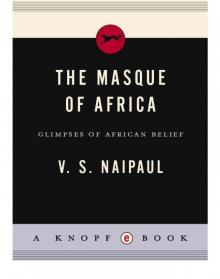 The Masque of Africa: Glimpses of African Belief
The Masque of Africa: Glimpses of African Belief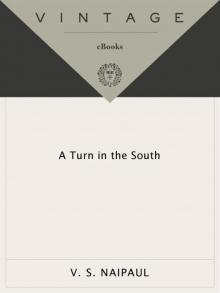 A Turn in the South
A Turn in the South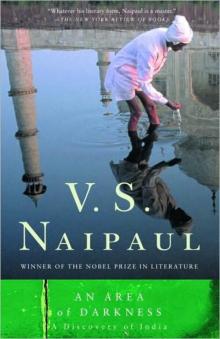 An Area of Darkness
An Area of Darkness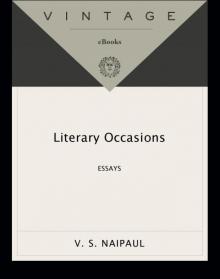 Literary Occasions: Essays
Literary Occasions: Essays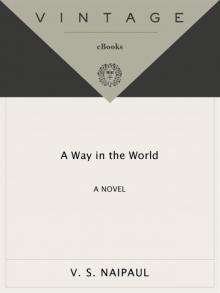 A Way in the World
A Way in the World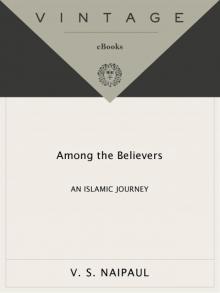 Among the Believers: An Islamic Journey
Among the Believers: An Islamic Journey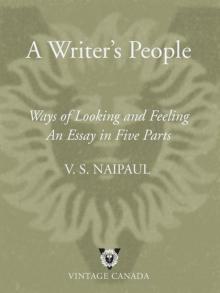 A Writer's People: Ways of Looking and Feeling
A Writer's People: Ways of Looking and Feeling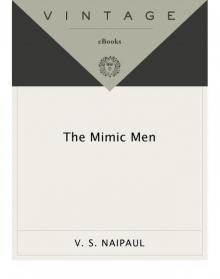 The Mimic Men: A Novel
The Mimic Men: A Novel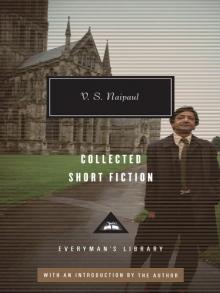 Collected Short Fiction
Collected Short Fiction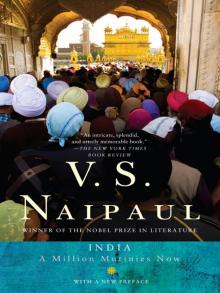 India: A Million Mutinies Now
India: A Million Mutinies Now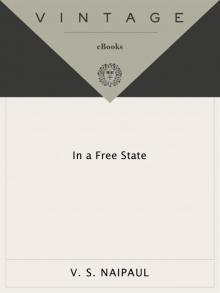 In a Free State
In a Free State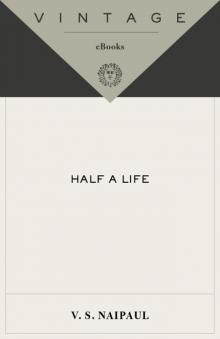 Half a Life
Half a Life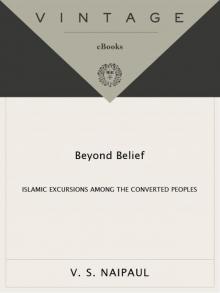 Beyond Belief: Islamic Excursions Among the Converted Peoples
Beyond Belief: Islamic Excursions Among the Converted Peoples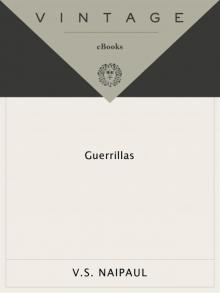 Guerrillas
Guerrillas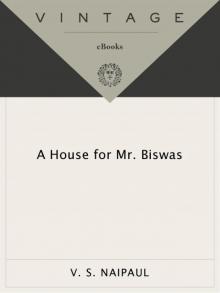 A House for Mr. Biswas
A House for Mr. Biswas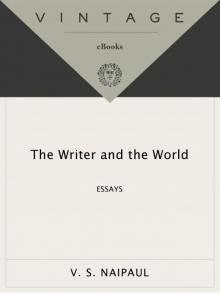 The Writer and the World: Essays
The Writer and the World: Essays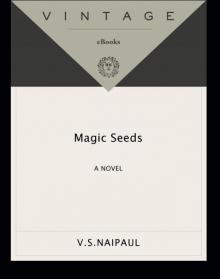 Magic Seeds
Magic Seeds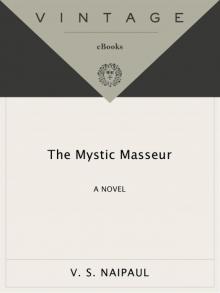 The Mystic Masseur
The Mystic Masseur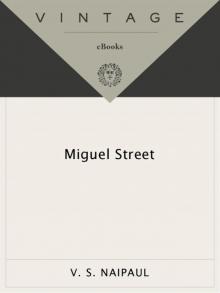 Miguel Street
Miguel Street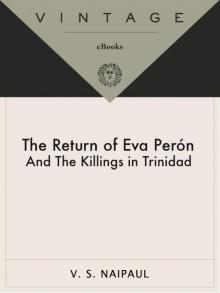 The Return of Eva Perón, With the Killings in Trinidad
The Return of Eva Perón, With the Killings in Trinidad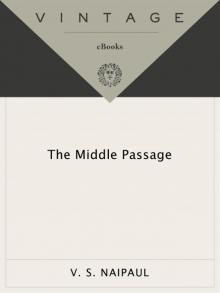 The Middle Passage
The Middle Passage A Bend in the River
A Bend in the River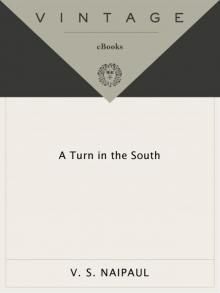 A Turn in the South (Vintage International)
A Turn in the South (Vintage International)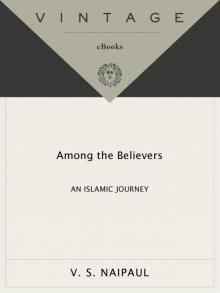 Among the Believers
Among the Believers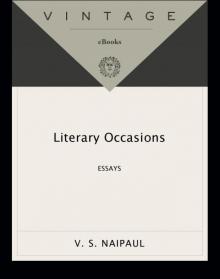 Literary Occasions
Literary Occasions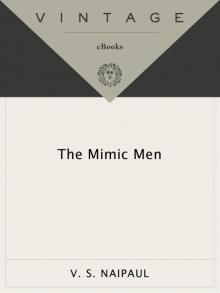 The Mimic Men
The Mimic Men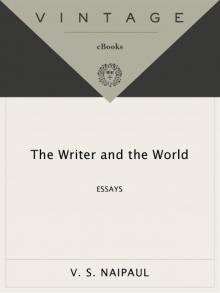 The Writer and the World
The Writer and the World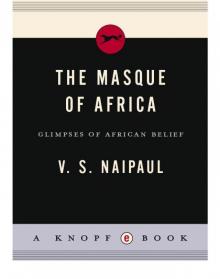 The Masque of Africa
The Masque of Africa